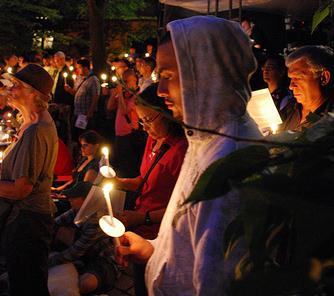Queer refugee activists will be holding a candlelight vigil Saturday, May 5 in Cawthra Park to denounce the Conservative government’s proposed reforms to the refugee process, which they say will harm queers seeking refuge in Canada.
Bill C-31, called the “Protecting Canada’s Immigration System Act,” makes a number of changes to the refugee process, including giving the minister of immigration exclusive power to designate certain countries as “safe.” If claimants arrive in Canada from those countries, they’ll have severely curtailed rights to appeal decisions against them.
There’s concern that ministers may designate certain countries as “safe” in order to score diplomatic points with those countries despite the situation on the ground still being unsafe for certain people.
Activists point to Mexico – once the largest source of refugees in Canada until the government imposed visa requirements in 2009 – as a typical country that could be declared “safe” by a minister to clear a diplomatic and political hurdle. In recent years, several queer Mexicans have successfully claimed refugee status in Canada, citing police brutality, extortion and coercion at home. Leonardo Zuniga’s was one of the most high-profile cases, and his years-long struggle with the refugee system in Canada was finally won in 2009.
The new regulations will also impose strict time limits for refugees to present and prepare their cases, which makes it more difficult for them to assemble documentation, acclimatize to Canada, get psychological reports and retain counsel, says immigration lawyer El-Farouk Khaki.
This is of particular concern for queer refugees. If they’re not able to live openly in their home countries, it may be more difficult for them to provide evidence of their sexuality.
Vigils and other protest activities are being organized in other parts of the city and across Canada to start a grassroots opposition to the bill.
The vigil in Cawthra Park is being organized by Alvaro Orozco – who just last year successfully overcame a deportation order and was granted refugee status – along with the Canadian Council for Refugees, Supporting Our Youth and a group called the Bill C-31 Campaign.


 Why you can trust Xtra
Why you can trust Xtra


